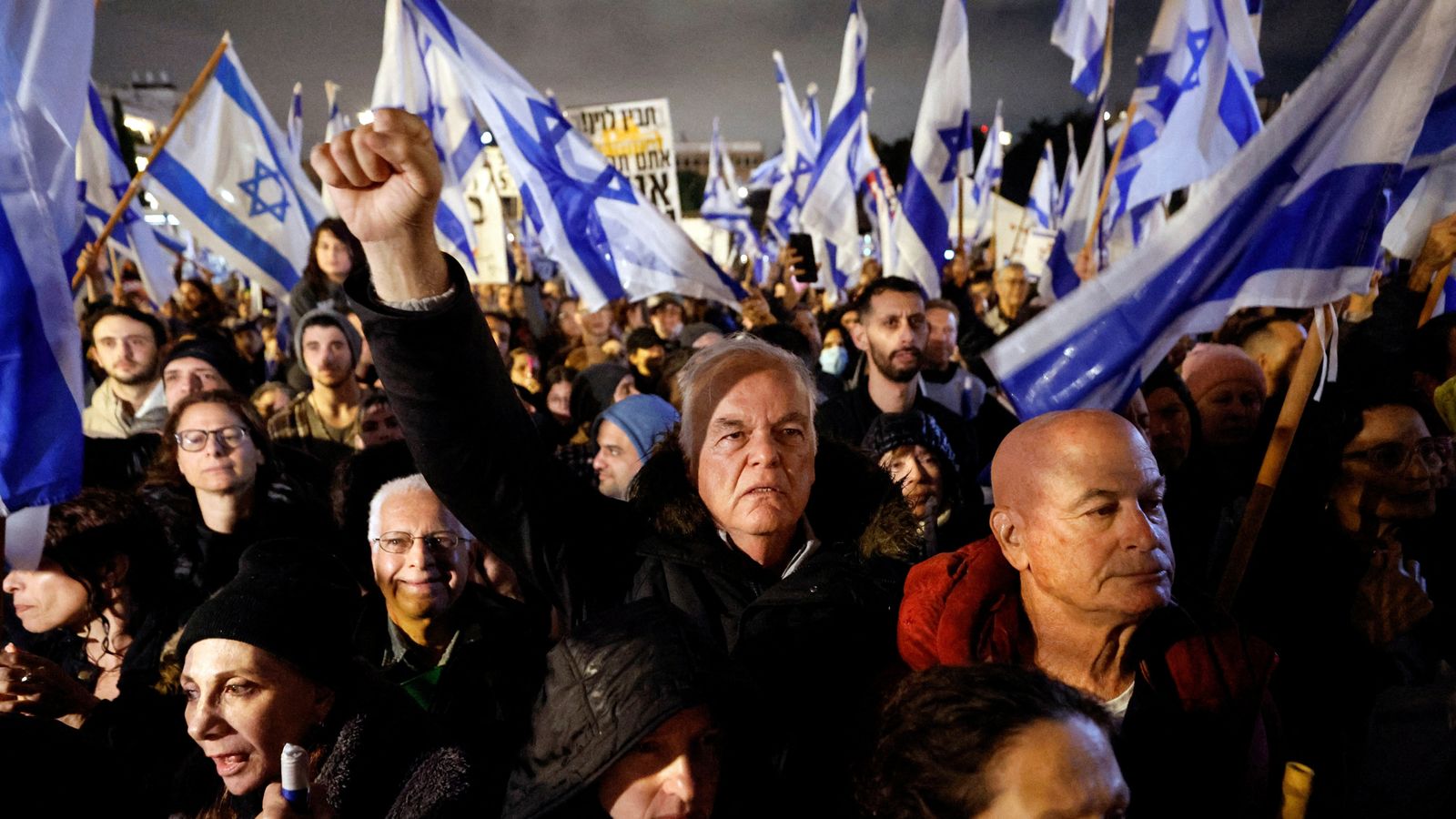Tens of thousands of protesters have taken to the streets in three Israeli cities to oppose plans by Benjamin Netanyahu’s government to overhaul the country’s legal system and weaken the Supreme Court.
The crowd at Tel Aviv’s Habima Square swelled to at least 80,000 people, according to media reports citing the police, with many holding Israeli flags and signs saying “criminal government”, “the end of democracy” and other slogans.
“They are trying to destroy the checks and balances of the Israeli democracy,” said protester Asaf Steinberg. “And we will fight until the very last minute to save the Israeli democracy.”
A small number of people were reportedly involved in scuffles with police as they tried to block a Tel Aviv highway, but otherwise there was no major unrest.
Smaller protests on Saturday evening also took place in Jerusalem and Haifa.
Israeli media quoted police as saying officers had been instructed to be “very sensitive” and allow the protests to proceed peacefully. But they also vowed a tough response to any vandalism or violent behaviour.
Prime Minister Netanyahu, who is on trial for corruption charges, has made overhauling the country’s legal system a centrepiece of his agenda.
Benjamin Netanyahu sworn in as Israel’s prime minister for sixth time
Benjamin Netanyahu announces he has formed new coalition to govern Israel
Benjamin Netanyahu set to form government after Israeli PM concedes defeat in election
In office for just over two weeks, his new government, which is comprised by ultra-Orthodox and far-right nationalist parties, has launched proposals to weaken the Supreme Court by giving parliament the power to overturn court decisions with a simple majority vote.
It also wants to give parliament control over the appointment of judges and reduce the independence of legal advisers.
Mr Netanyahu’s justice minister says unelected judges have too much power, but opponents to the plans say the proposed changes will rob the judiciary of its independence and undermine Israeli democracy.
Israeli opposition leaders, former attorney generals and the president of Israel’s Supreme Court have all spoken out against the plan.
The legal changes could help Mr Netanyahu evade conviction or even make his trial disappear entirely. Since being indicted in 2019, Mr Netanyahu has said the justice system is biased against him.
Read more:
Tensions rise as Israel’s govt hardens policies towards Palestinians
Israeli minister accused of ‘deliberate provocation’ after visit
Netanyahu sworn in as Israel’s prime minister for sixth time
Asked about the protests, Miki Zohar, a senior politician in Mr Netanyahu’s conservative Likud party, said: “Tens of thousands of people were at tonight’s demonstrations. In the election held here two and a half months ago, millions turned out.
“We promised the people change, we promised governance, we promised reforms – and we will make good on that.”







